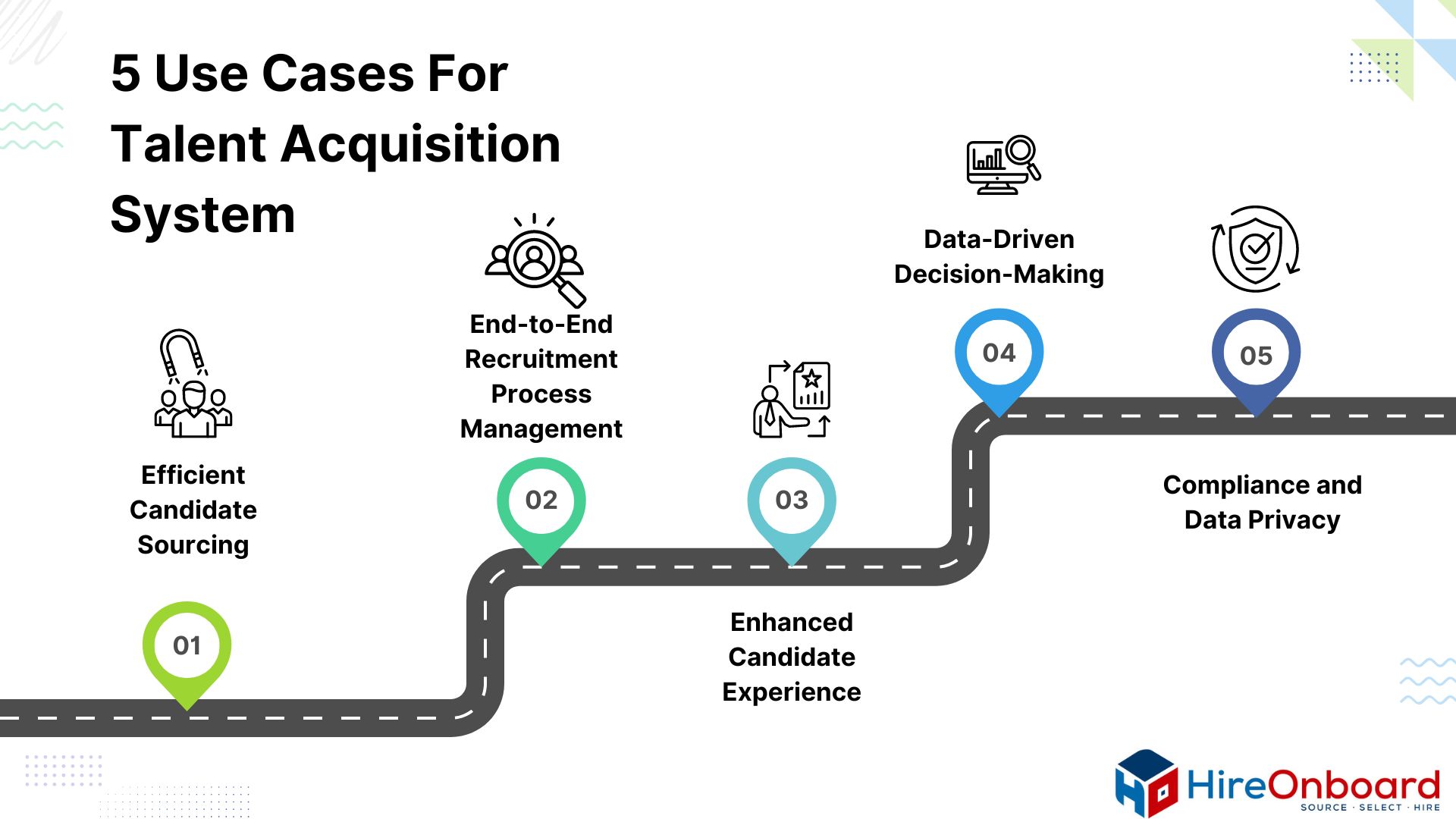In today’s economic slowdown, organizations must prioritize attracting and retaining top talent to stay ahead. A strong talent acquisition system is key in this endeavor. This article will explore the definition, key features, and applications of a talent acquisition system. Additionally, we will discuss how modern, adaptable talent acquisition systems can provide significant advantages to larger organizations. Let’s dive in!
What is a Talent Acquisition System?
A talent acquisition system is a robust software solution designed to streamline and optimize the various processes related to sourcing, attracting, assessing, selecting, and onboarding employees. It includes a multitude of features, ranging from posting job openings and sourcing candidates to scheduling interviews and managing candidates. By utilizing talent acquisition systems, organizations can efficiently oversee the entire recruitment process and enhance their overall hiring efficiency.
Top 10 Features of Talent Acquisition Systems
Applicant Tracking System (ATS)
An ATS serves as the foundation of any talent acquisition system, enabling recruiters to monitor candidate applications, review resumes, automate screening processes, and facilitate seamless communication with candidates.
Candidate Relationship Management (CRM)
A CRM module empowers recruiters to cultivate and nurture relationships with potential candidates, fostering long-term engagement that helps maintain a robust talent pipeline for future needs.
Job Requisition Management
This feature enables recruiters to create, oversee, and approve job requisitions within the system, ensuring a standardized process, enhanced collaboration, and increased visibility among all stakeholders.
AI-Driven Candidate Screening
The Artificial Intelligence (AI) capabilities integrated within a talent acquisition system improve candidate screening by automatically shortlisting candidates according to predefined criteria, ultimately saving time and effort.
Interview Scheduling and Management
The system simplifies the interview scheduling process, enabling recruiters to send invitations, coordinate interview slots, and receive confirmations, all through a centralized platform.
Assessment and Testing
Talent acquisition systems frequently integrate with pre-employment testing platforms, allowing recruiters to conduct and evaluate assessments, skill tests, and psychometric evaluations.
Reporting and Analytics
Comprehensive reporting and analytics capabilities offer insights into recruitment performance, enabling recruiters to assess the efficacy of their sourcing strategies, pinpoint bottlenecks, and make informed, data-driven decisions.
Onboarding and Integration
A talent acquisition system should also provide features to support the smooth onboarding of new hires, such as document management, training coordination, and integration with HRMS or other pertinent systems.
Employee Referral Program Management
This functionality empowers recruiters to leverage their current workforce by promoting and overseeing employee referral programs. It streamlines the process of identifying qualified candidates within the company’s network.
Mobile Recruitment
In the age of remote work and the mobile workforce, talent acquisition systems should provide mobile-friendly interfaces and applications to attract and engage candidates while they are on the move.
5 Use Cases for Talent Acquisition Systems

Efficient Candidate Sourcing
A talent acquisition system enhances the effectiveness of candidate sourcing by consolidating data from various sources, including job boards, social media platforms, and internal databases. Recruiters can search, filter, and rank candidates according to specific criteria, resulting in quicker and more precise outcomes.
End-to-End Recruitment Process Management
Talent acquisition systems empower recruiters to seamlessly oversee the entire recruitment process. From creating requisitions to onboarding candidates, all stages can be streamlined within a unified platform, guaranteeing a uniform and efficient process.
Enhanced Candidate Experience
A well-crafted talent acquisition system offers a positive candidate experience by minimizing application time, providing self-service functionalities, and delivering consistent updates on the application status.
Data-Driven Decision-Making
The reporting and analytics features of talent acquisition systems empower recruiters to gauge the effectiveness of their recruitment endeavors, pinpoint bottlenecks, and leverage data-driven insights to enhance their holistic hiring strategy.
Compliance and Data Privacy
As recruitment processes entail handling sensitive candidate data, an integrated talent acquisition system guarantees compliance with data protection regulations, minimizing the risk of data breaches and legal repercussions.
Why Modern and Flexible Talent Acquisition Systems Are Vital for Large Organizations?
Large organizations frequently encounter distinct challenges in talent acquisition, such as handling large volumes of applications, coordinating multiple recruitment team members, and ensuring consistency across diverse locations and departments. Modern and adaptable talent acquisition systems can tackle these challenges by providing:
Scalability
An updated talent acquisition system can efficiently manage high volumes of applications, enabling large enterprises to address their recruitment requirements without sacrificing quality.
Centralized Collaboration
Collaborating within a unified platform improves coordination and communication between recruiters, hiring managers, and other stakeholders, ensuring uniformity in screening, evaluation, and decision-making processes throughout the organization.
Customization and Integration
Large corporations frequently demand customized recruitment processes and integration with current HR systems. Modern talent acquisition systems offer flexibility and customization features, delivering a smooth experience tailored to the company’s specific needs.
Advanced Analytics
Large corporations accumulate substantial amounts of recruitment data. Modern talent acquisition systems utilize advanced analytics to transform this data into actionable insights, facilitating ongoing enhancement of recruitment strategies and processes.
Employer Branding and Candidate Engagement
Major corporations often prioritize developing strong employer brands. Talent acquisition systems play a key role in this objective by providing tools for employer branding, candidate relationship management, and engagement, ensuring that the organization attracts and retains top talent.
Concluding Thoughts: Essential Points to Remember
Talent acquisition systems have become indispensable for modern organizations, particularly large companies, to attract, assess, and retain top talent efficiently. The key is to select a talent acquisition system that aligns with the organization’s recruitment objectives, offers a comprehensive set of features, and is adaptable to changing business needs. By investing in a modern and flexible talent acquisition system like HireOnboard, large companies can streamline their recruitment processes, improve candidate experience, and make data-driven decisions to stay ahead of the competition.
